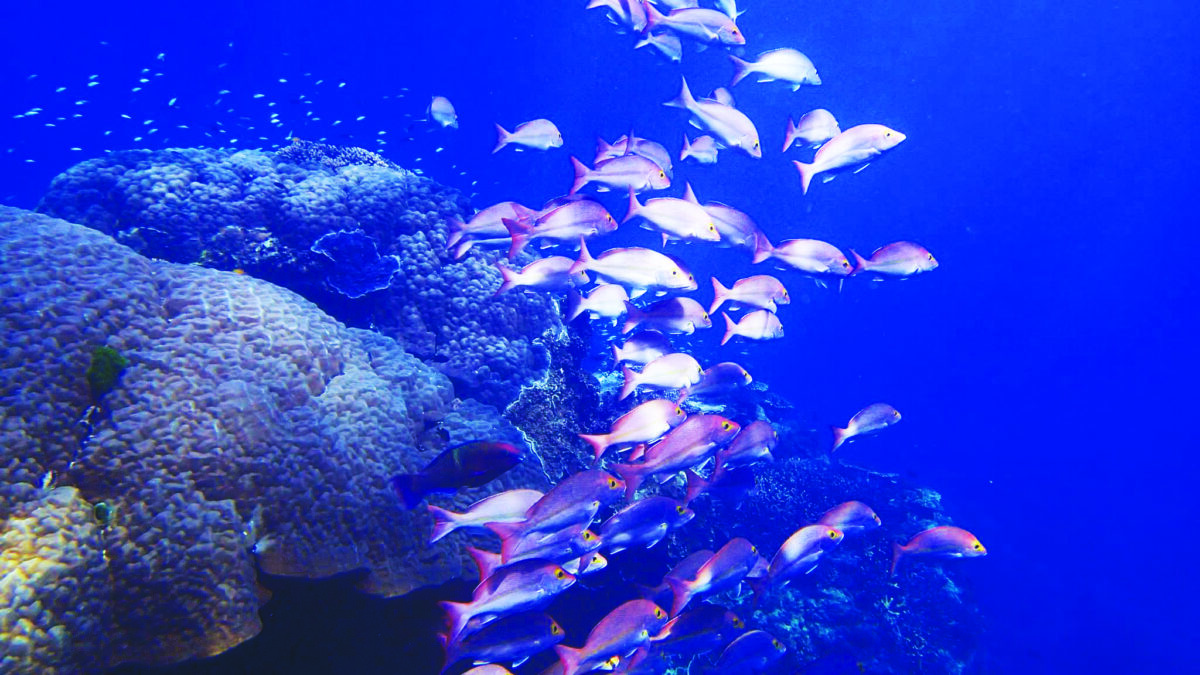The rate of ocean acidification in coral reefs outpaces the rise in carbon dioxide (CO2) in Earth’s atmosphere, indicating that anthropogenic carbon emissions alone are not to blame for the threat to coral reefs, a new study shows.
Cyronak et al. demonstrated that CO2 levels have risen 3.5 times faster in coral reefs than in the open ocean. Unlike in the open ocean, where long-term tracking of CO2 levels is done at many individual stations, in individual coral reefs there is a lack of uninterrupted measurements. To compensate for this lack, the authors compared CO2 levels reported in the literature from coral reefs throughout the globe.
The authors also developed a model of reef metabolism based on data from Heron Island (in the Great Barrier Reef) to investigate the potential causes of this accelerated increase in ocean acidification. They found that the increase is likely due to human activities bringing elevated levels of nutrients and organic matter from surface runoff and submarine groundwater discharge.
According to the authors, the results show that reductions in CO2 emissions alone will not be enough to end threats to coral reefs, and local officials will need to confront the management challenge of dealing with pollutants. The team cited a need for increased long-term monitoring not only of coral reefs but also of estuaries, which could be exhibiting similar problems. (Geophysical Research Letters, doi:10.1002/2014GL060849, 2014)
—Eric O. Betz, Writer
Citation: Betz, E. O. (2014), Ocean acidification worse in coral reefs, Eos Trans. AGU, 95(48), 452, doi:10.1002/2014EO480005.
© 2014. American Geophysical Union. All rights reserved.
© 2014. American Geophysical Union. All rights reserved.

